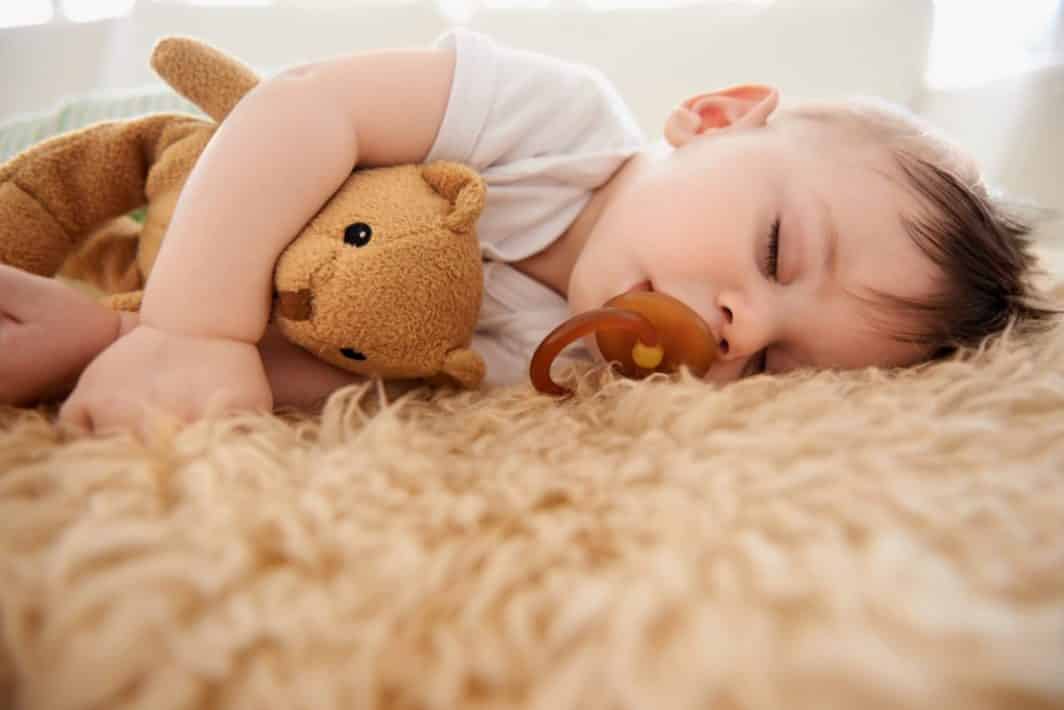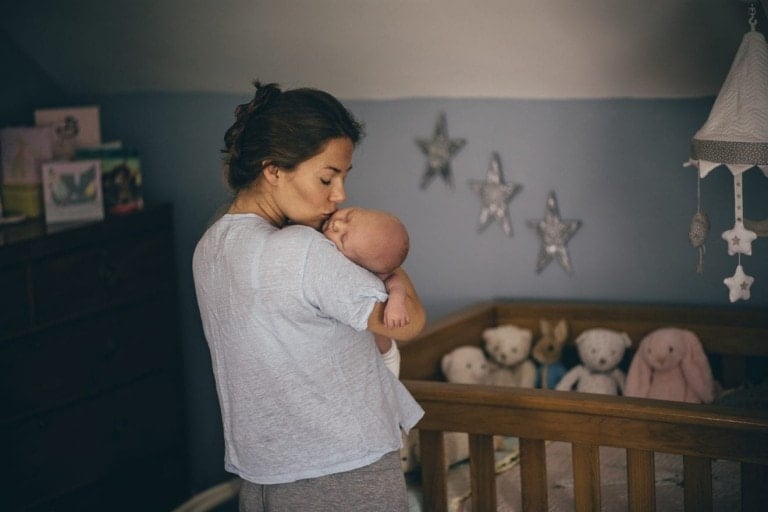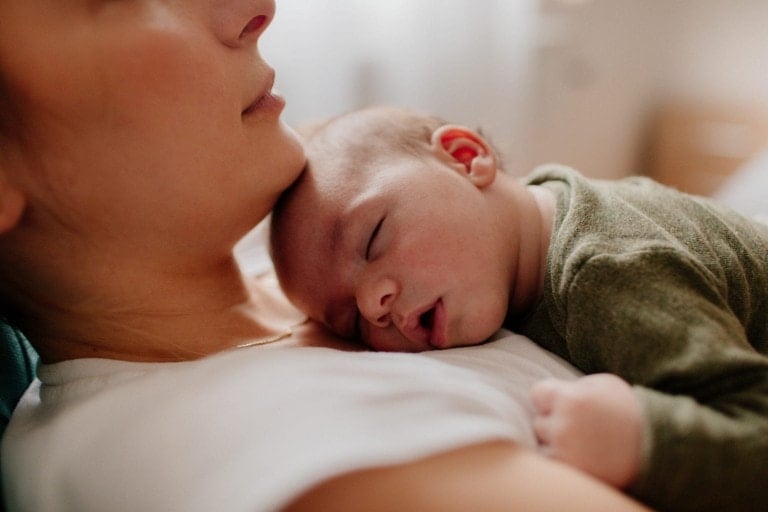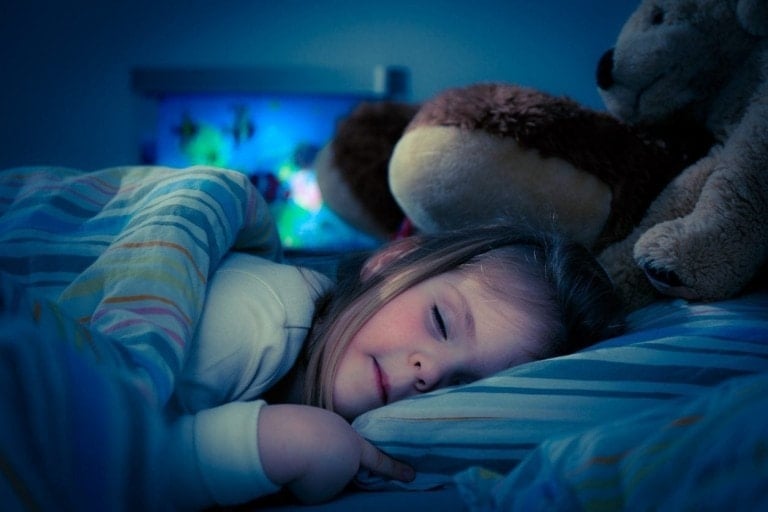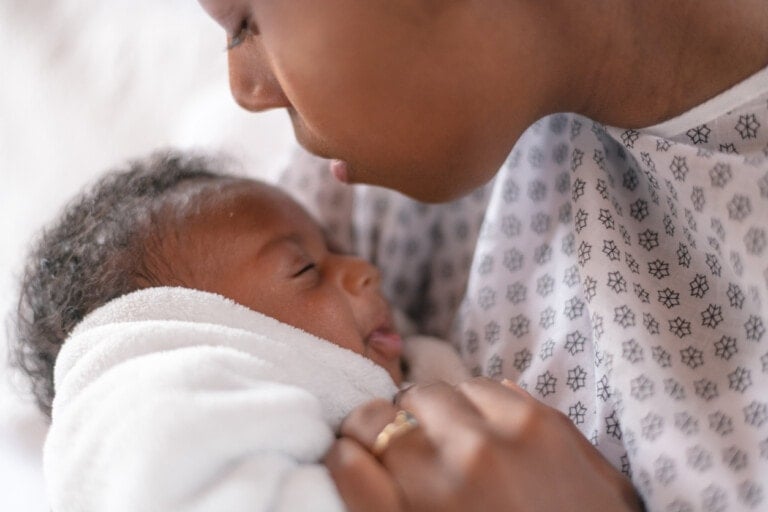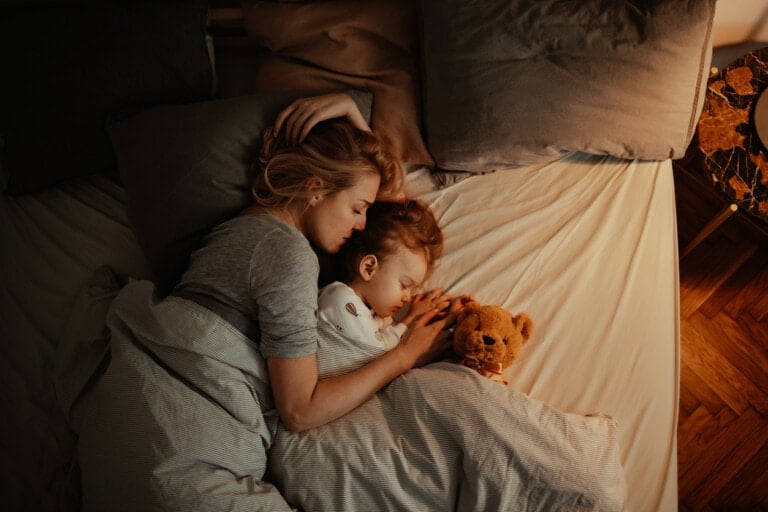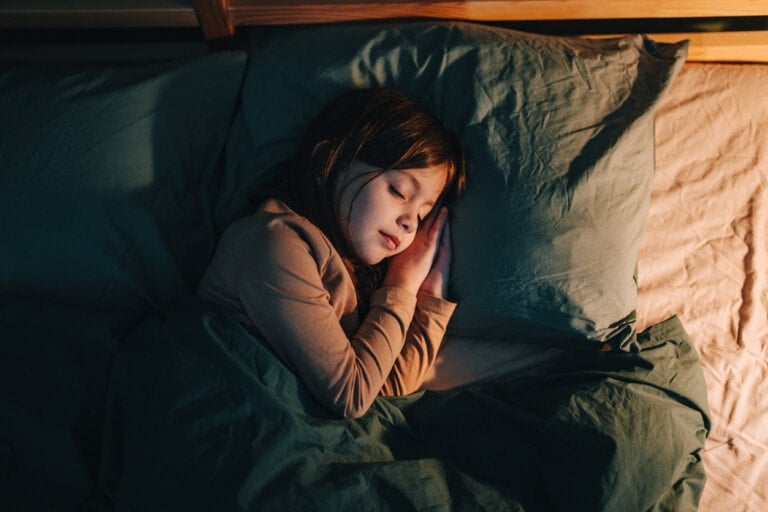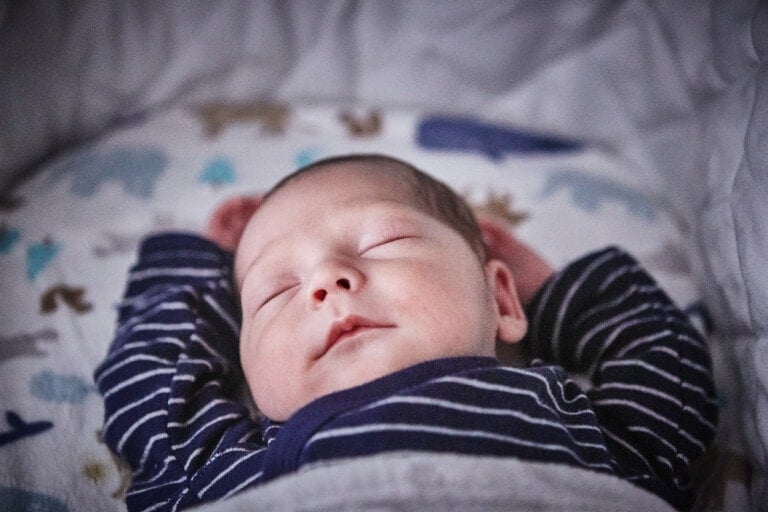Ah, sleep regressions! They are dreaded and feared by parents of children under two and a half all around the world, and rightfully so. Nothing is worse than when our at least decent little sleeper starts napping poorly—and even more of a nightmare when the missed or shorter naps begin wreaking havoc on nighttime sleep!
Sleep regressions usually occur when your baby is embarking upon an exciting new gross motor development skill. Here is what to do to not only survive but thrive during sleep regressions while protecting your child’s sleep:
First:
Giving babies lots of extra practice with their new and budding capabilities is very helpful, such as learning to roll over, sit up, crawl, stand, walk, run, and climb.
When we wear them out with these things during their wakefulness periods, they will be more satisfied and ready for their naps, rather than lie in their cribs crying or wanting to practice their new skills in their crib, causing them to miss or resist naps. It’s the equivalent of having an itch you can’t scratch.
Second:
Cap the morning nap after just one sleep cycle (50 minutes for kiddos under 3, once they fall asleep) rather than letting this be your long nap.
This should allow just a little more sleep pressure to build up in the brain, helping them be ready for their afternoon nap, which is usually the one that suffers most when sleep regressions occur. Let’s not forget that the quality of night sleep is based on the quality of the afternoon nap, so we must be careful to protect this nap the most!
Third:
Early bedtimes! Believe it or not, the popular 7 pm bedtime may still be too late. Look for that brief window of “relaxed state” cues (still, quiet, spacing out). Anticipate these cues in advance by logging when you see this for a few nights. Most parents are shocked at how early in the evening they see this happening.
Once you realize the true timing of correct sleep cues, have dinner and bedtime routine complete just in time to catch this 10-15 minute window. Then, lay them down in their crib or bed and say goodnight. This is when they are apt to have the highest levels of that powerful sleep hormone, melatonin, in their system. When this happens, you will have a child who receives the benefits of sleep, wakes less throughout the night, and wakes later in the morning, not earlier, as our adult sleep logic would have us believe with an earlier bedtime.
If you focus on healthy sleep hygiene instead of sleep behaviors, you won’t get caught up in poor reactive habits surrounding sleep, and you’ll be able to help your little one ride out this 2-4 week regression storm like a boss!













